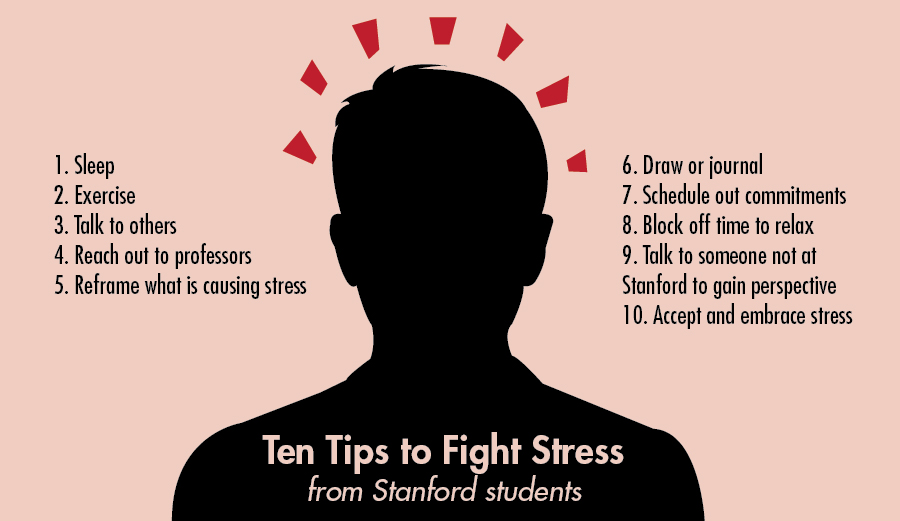
Stress influences one out of five of the working populace from the shop floor to the board room. 105 million days are lost each year; costing British businesses £1.24 billion for each annum. (Source: Health and Safety Executive).
Stress is something that appears to effortlessly raise its head in the advanced working world.
Wouldn’t it be incredible to manage pressure all the more adequately?
Here we give you 10 straightforward tips to managing and surviving, worry in the working environment.
We will, in general, consider pressure a marvel of the cutting edge working condition, however, it may amaze you to realize that individuals have been examining worry for almost a century. It was Walter Cannon path in 1932 who presented the “Battle or Flight” hypothesis
The abnormal thing about pressure is that we as a whole ordeal it at various occasions yet we think that its exceptionally difficult to explain precisely what it is.
The most generally acknowledged meaning of pressure originates from the late Richard S Lazarus, a famous therapist. In his book “Mental pressure and the adapting procedure” distributed in 1966 he expresses that “stress is a condition or feeling experienced when an individual sees that requests surpass the individual and social assets the individual can assemble.”
As such, we feel pushed when we are not responsible for occasions.
I need to acquaint you with Albrecht’s Four Types of Stress. Dr. Karl Albrecht presented this model in “Stress and the Manager – making it work for you” in 1979. Albrecht composed that “the vast majority of the incessant pressure experienced by twentieth-century Americans originates from nervousness”.
Albrecht recognized four sorts of pressure:
1) Time Stress
2) Anticipatory Stress
3) Situational Stress
4) Encounter Stress
I wonder what number of these you have encountered?
Time Stress
This is the tension brought about by trusting that you will come up short on time. Most likely you will have been in circumstances where a due date is approaching. The very reality that time is running out raises your dimensions of uneasiness (or stress).
This territory of stress can be overwhelmed by compelling time the board.
Basic schedules are a decent method to begin. Excessively regularly we endeavor to store every one of our errands in our minds. They get scattered up and our minds nearly feel like they will detonate! In addition, when everything is in our mind it is difficult to figure out what is critical or what arrangement things ought to be finished in. Along these lines, while a schedule is straightforward it is additionally an incredible method for getting everything out of our heads and onto paper where we can see them.
Steven Covey’s “Critical/Important” grid is simple to utilize an instrument to enable you to organize your work. It enables you to “burrow where the precious stones are” yet it likewise empowers you to eject a portion of the stuff that truly isn’t imperative in your activity or life.
Time pressure is additionally constrained upon us as we have an ever increasing number of errands dropped on us by others. This “monkey on the shoulder” disorder can best be countered by expanding your emphatics.
Expectant Stress
This is a tension about inevitable occasions.
A significant number of us will have encountered the circumstance where we stress that “something” will turn out badly before an assignment or occasion or that an individual won’t care for us or that there will undoubtedly be a better possibility for work.
Throughout the previous 12 years, I have been helping individuals improve their trust in Public Speaking.
On numerous occasions, I have worked with individuals who have a not insignificant rundown of situations that they dread may occur. Actually, a large portion of these feelings of trepidation never happen. Albeit, a few apprehensions, whenever abided upon enough to come to fruition. On the off chance that you are continually imagining that you will drop your notes amid your introduction you will. This is “The Law of Attraction” which is included in the book “The Secret”. What you stay upon is pulled in into your life.
So why not draw in progress into your life? In “The Secret”, Dr. Denis Waitley depicted the accompanying incredible investigation of representation:
“I took the representation procedure from the Apollo program and organized it amid the 1980s and ’90s into the Olympic program. It was called Visual Motor Rehearsal.
When you envision then you appear.
Here’s a fascinating thing about the brain: we took Olympic competitors and had them run their occasion just in their psyche, and after that snared them to advanced biofeedback hardware. Unfathomably, similar muscles terminated in a similar succession when they were running the race in their brain as when they were running it on the track. How could this be? Since the brain can’t recognize whether you’ve truly done it or whether it is simply practiced. On the off chance that you’ve been there in the mind, you’ll go there in the body.”
So endeavor to imagine achievement as opposed to abiding upon the negatives.
There are some different tips to defeating expectant pressure:
Possibility arranging is a method for taking a gander at the potential issues and building up a “plan B”. Just by having that emergency course of action enables you to beat worry by realizing that regardless of whether an issue happens (and, let’s be honest, they do) you have an activity plan which implies that you hold control of the circumstance.
Reflection is a great method to reestablish a dimension of quiet to your psyche and body. Sandra and I are at present after a day by day reflection program from Deepak Chopra and Oprah Winfrey ( https://chopracentermeditation.com/) which has enormously affected the manner in which we are managing the difficulties and worries in our bustling lives.
At long last, here and there we simply need to figure out how to adapt to disappointment.
I saw a measurement that demonstrated that the best strikers in the prevalence score not exactly 33% of the shots they take on the objective. By any factual measure, they are disappointments yet we don’t assume they are. They acknowledge that they can’t score without fail.
In 2012, Katherine Grainger won a bar of Olympic gold at paddling. However, this achievement came after disappointments to verify gold at the three past Olympic Games. She recently acknowledged that falling flat happens now and then making a course for progress.
Vincent Lombardi summed it up perfectly: “It’s not whether you get thumbed down but rather whether you get up.”
Situational Stress
This sort of worry, as per Albrecht, is the point at which we really have lost control of a circumstance. Repetition, sadness, and individual clashes all will in general fall into this kind of stress.
Much the same as King Canute attempting futile to stop the ocean coming in, we can’t generally keep a circumstance from occurring. Be that as it may, what we can control is the manner in which that we react to the circumstance.
On the off chance that you review Richard Lazarus’ meaning of pressure, it is the point at which we are not responsible for a circumstance.
By expanding our mindfulness causes us to comprehend our shortcomings and to know about the triggers that worry us and how we can divert the circumstance from a place of shortcoming to a place of solidarity.
We can likewise, on a useful dimension, figure out how to oversee struggle in the work environment (or perhaps it is outside the working environment as well).
Regularly we feel that a circumstance is crazy when a partner (or most likely a supervisor) demonstrations in a forceful way. This animosity, almost bullying, is unquestionably a reason that a few people feel worried at work. Or maybe like in Time Stress, figuring out how to end up increasingly decisive and less uninvolved will help recover control of a circumstance and this specific type of pressure.
Experience Stress
The fourth kind of stress recognized by Dr. Karl Albrecht is classified as “Experience pressure”.
As the name infers, this pressure spins around individuals.
In some cases, our collaboration with a specific individual or gathering of individuals is upsetting in itself.
This might be on the grounds that we don’t care for them – we frequently hear individuals saying that somebody generally “bothers them”. On the other hand, feelings of anxiety can be raised in light of the fact that the individual that you are managing is flighty. The third purpose behind individuals expanding your pressure is that the individual is in trouble themselves. Consider individuals in the wellbeing callings. They are managing individuals in agony or perhaps they need to give them awful news. Whichever way the individual being managed will be in some type of trouble. In the event that you go to a totally extraordinary field, say call focuses, you will likewise discover clients bringing in some type of misery (ordinarily an objection, however not generally).
The last reason that individuals can raise feelings of anxiety is essentially in light of the fact that you can get to a point of “contact over-burden”. Those of you who know about Myers Briggs identity types may review that a few people are “I’s”. They want to ponder data before deciding. On the off chance that an individual with this identity type is in a domain with heaps of outgoing individuals, it can, inevitably, feel very overpowering.
The tips for beating this kind of stress are like “Situational Stress”. Building up your enthusiastic knowledge and mindfulness will be a key strategy.
Stretching out that mindfulness to seeing how other individuals “tick” at that point turns into an integral asset. This could be by basically understanding Myers-Briggs identity types or motivating a group to have an MBTI appraisal. Finding out about the 5 phases of distress is likewise a valuable instrument. While this model was initially intended to help individuals comprehend deprivation it is presently broadly used to see how individuals manage injuries in their lives.
End
Stress is a tremendous issue in the working environment. It costs lost days and arrives in a desperate predicament line. While it is vital for managers to endeavor to diminish the dimensions of worry in the workplace, as Richard Lazarus contends, stress is about when we feel that occasions are out of our control. In light of this, it is difficult to perceive how bosses can lessen worry without anyone else.
What’s more, at any rate, to what extent are we willing to trust that our association will change.
What we can do, be that as it may, is take activities ourselves. By making a move, building up our aptitudes, increasing more noteworthy degrees of mindfulness we can start to assume responsibility for the occasions in our lives for ourselves.
Our 10 hints to conquering pressure are:
1) Start schedules
2) Prioritize your work
3) Increase your emphaticness aptitudes
4) Develop perception systems
5) Work up alternate courses of action
6) Practice reflection
7) Learn to adapt to disappointment.
8) Develop your capacity to oversee strife
9) Use Myers Briggs (MBTI) to assemble better between close to home connections
10) Increase yourself mindfulness and Emotional Intelligence.
 Bring Your Best You Your No.1 Healthy Lifestyle Blog
Bring Your Best You Your No.1 Healthy Lifestyle Blog



